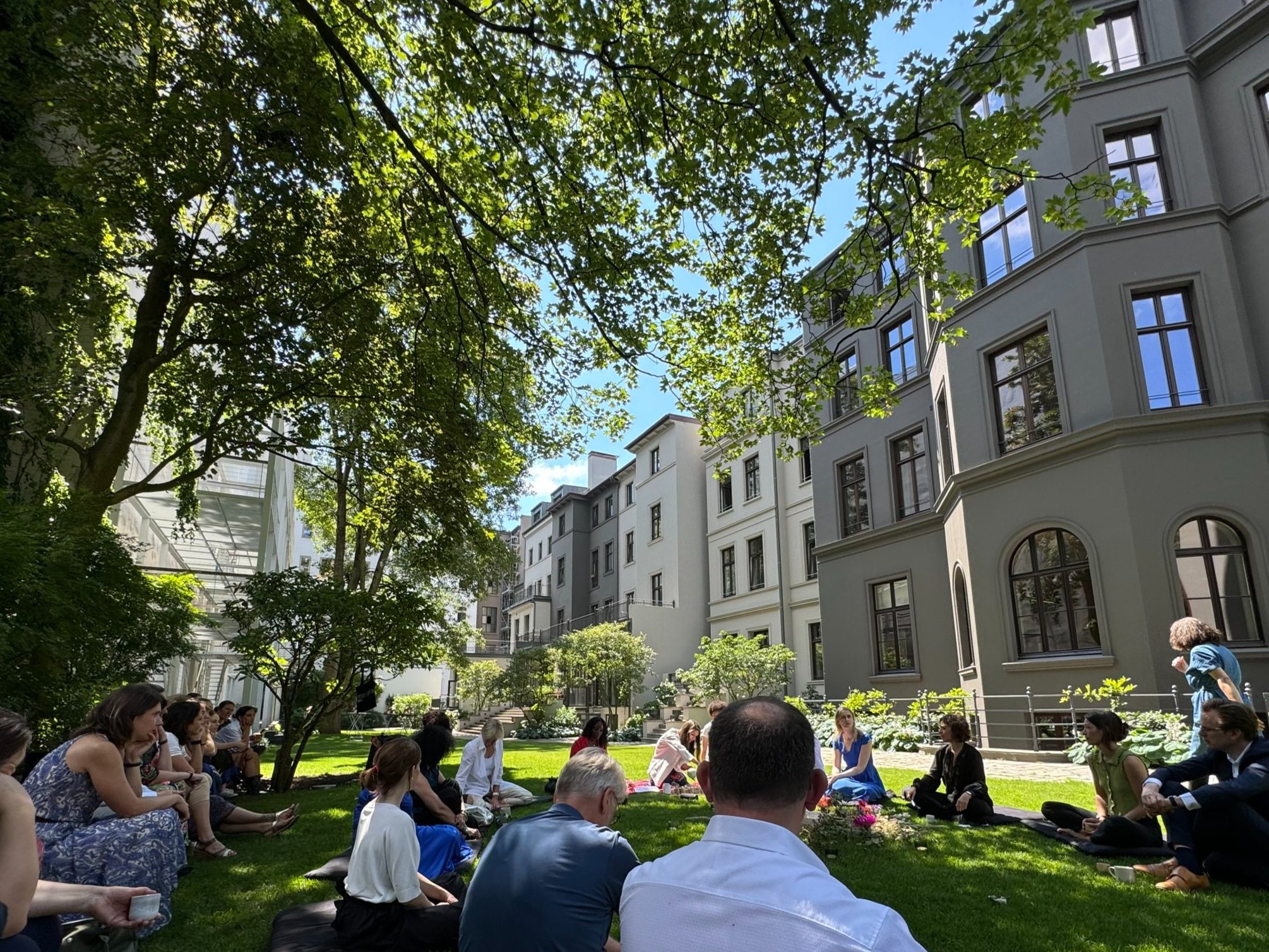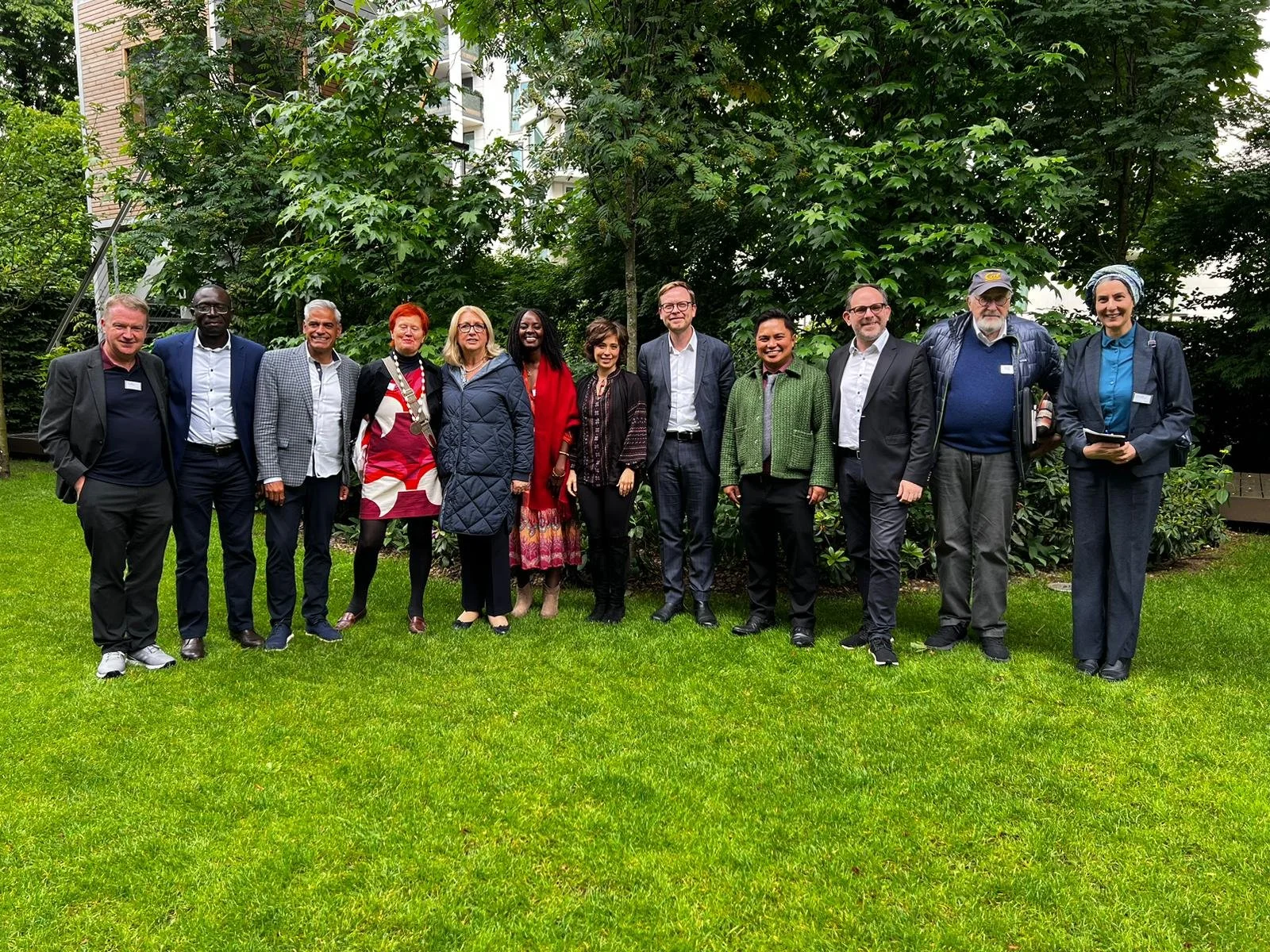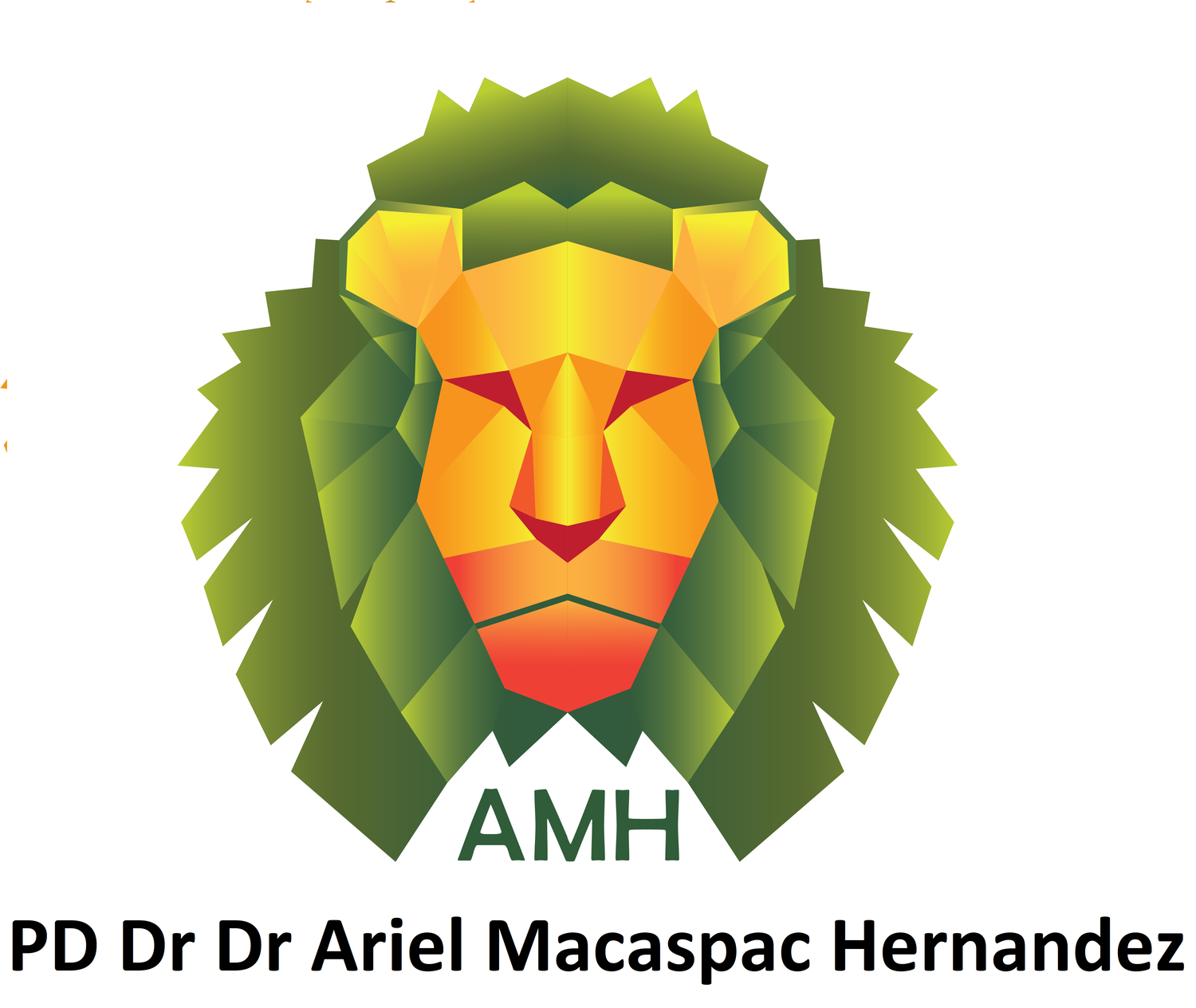Stakeholder Dialogue and Science Communication

Throughout my career, I have actively contributed to the economic and societal valorization of research by translating academic insights into practical applications as well as co-creating knowledge through multi-stakeholder dialogue formats. In the past 15 years, I have convened more than 100 stakeholder dialogue workshops in more than 20 countries.
Key outcomes include:
1. Strategic Partnerships and Policy Influence:
Co-developed the Center of Excellence for Sustainable Energy in the Philippines, which facilitated capacity-building programs for over 200 government officials, energy experts, and local leaders in rural communities. The program, funded by the European Commission through the ASEP-CELLs Project in the Philippines, established cooperation between several universities and research institutes in the Philippines and Germany to provide practical training in renewable energy technologies, directly empowering rural stakeholders. This initiative contributed to the development and implementation of national renewable energy policies, fostering inclusive and community-based energy transitions.
Contributed to the establishment of Indonesia’s National Platform on Sustainability Standards under the EFTA-Indonesia Free Trade Agreement by organizing stakeholder dialogue meetings involving 50+ public and private sector stakeholders. These dialogues facilitated the creation of an interest group that actively informed the Indonesian government, through the Indonesian Standardization Body, during the EFTA-Indonesia negotiations. This collaboration enhanced sustainability compliance and aligned national standards with international trade agreements, fostering long-term economic and environmental benefits.
2. Knowledge Exchange and Stakeholder Impact:
Led workshops under the SHAPE project, engaging over 300 stakeholders across Europe, Asia, and Latin America, and incorporating insights from expert interviews and consultations with over 200 stakeholders across 30 countries from 2019 to 2024. These efforts culminated in actionable sustainability roadmaps, now integrated into climate resilience planning in Brazil and South Africa. The recommendations emphasized the need for a cohesive theoretical framework and comprehensive social science engagement to refine sustainability tools. A key outcome was the application of the Sustainable Development Pathways (SDPs), a scenario set developed to address critiques from social sciences, ensuring more inclusive and robust planning for global sustainability transitions.
Co-organized multi-stakeholder conventions, including the International Convention on Sustainable Trade and Standards (attended by 400 participants in India and 240 in Brazil), which directly influenced sustainability policies in high-emitting sectors. These conventions facilitated the adoption and implementation of sustainability standards by private sector actors, driving measurable improvements in corporate practices and aligning industry operations with global environmental and social benchmarks.
3. Capacity Building and Training:
Designed and implemented the Managing Global Governance Academy, funded by the German Federal Ministry for Economic Cooperation and Development (BMZ). The program trained over 100 emerging leaders from Brazil, China, India, Indonesia, Mexico, and South Africa in climate justice and sustainability. Many alumni now hold influential policy roles in their respective countries, shaping national and international sustainability agendas and advancing equitable development practices.
Developed the curriculum for the Master’s in Sustainable Energy at UTECH, Jamaica, resulting in the program’s adoption across CARICOM and the training of 300+ students and professionals.
4. Economic Contributions and Intellectual Property:
Co-authored project proposals that secured funding for sustainability initiatives, including €3 million for the ASEP-CELLs Project in the Philippines, which fostered partnerships with local businesses to develop clean energy solutions.
Published intellectual outputs, which has been cited in over 800 academic and policy publications and incorporated into policy frameworks by international organizations such as UNCTAD and UNIDO. These outputs have directly informed sustainability strategies contributing to actionable pathways for achieving climate resilience and sustainable development goals.
5. Training Nuclear Test Inspectors for the CTBTO
Collaborating with international leaders and technical experts, I played a key role in developing a comprehensive training curriculum for inspectors under the Comprehensive Nuclear-Test-Ban Treaty Organization (CTBTO). This program equipped inspectors with the specialized skills and knowledge necessary to strengthen global monitoring systems and ensure compliance with international disarmament agreements. The initiative significantly contributed to global peace and security by bolstering the enforcement of nuclear non-proliferation measures. Reflecting on this experience, I contributed insights to the book chapter The Case of Arcania: Perspectives in Point-of-Entry Negotiations in Banning the Bang or the Bomb? Negotiating the Nuclear Test Ban Regime (Cambridge University Press, 2014). This publication explored negotiation dynamics within the context of the CTBTO’s work, highlighting the intricate interplay of technical expertise and diplomatic negotiation. This achievement underscores my capacity to bridge technical training and academic research, contributing to both global security and scholarly discourse on disarmament.
These achievements demonstrate my commitment to creating measurable societal and economic value by integrating research into actionable solutions that address global challenges.
Stakeholder Events I Helped Organize
-

Across Borders – Migration, Power, and Humanity
Jahresseminar 2025 of philippinenbüro e.V. (Stiftung Asienhaus)
September 12-14, 2025. Haus Venusberg, Bonn
This year’s Jahresseminar brought together civil society actors, Filipino community leaders, scholars, youth, and trade union representatives to address one urgent question:
How can migration between the Philippines and Germany move from dependency to solidarity?
-

Cork Workshop: Restoring the Sacred Ordinary in a Time of Polycrisis
June 17-18, University College Cork, Ireland
A follow-up action from workshops in Hamburg, this event aims to challenge some of the fundamental ideas underpinning current efforts to address the contemporary polycrisis.
The highlight of the workshop is the Declaration on ‘Restoring the Sacred Ordinary - Uniting the Religious and the Secular in a Time of Polycrisis’
-

T4T Co-LABorate 3 / HSC Accelerator Panel Title: Exploring Market Solutions for Biodiversity Conservation in Global Trade
Hamburg Sustainability Conference
June 2-3, 2025
This stakeholder discussion addresses addresses the challenges related to biodiversity protection through VSS. and presents scalable solutions to address challenges, providing a platform to reflect on implications of private sector-led biodiversity conservation initiatives.
-

T4T Co-LABorate 2 Stakeholder Workshop: Preserving and Transferring Indigenous Knowledge in a Digital World
March 10-12, 2025
German Institute for Global and Area Studies (GIGA), Hamburg
The main goal of the workshop is to identify and address the essential challenges and opportunities for global transfotmation towards sustainability through the preservation and dissemination of indigenous knowledge in a ditgital age.
-

Religions in Transformation to Sustainability
June 12-13, 2024
THE NEW INSTITUTE, Hamburg
This workshop aims to explore the capacity for religions to overcome their own self-referential dogmatism and sectarian certainties and engage in open discovery with other religious and secular actors on the basis of a common ethical foundation of care, love and respect.
-

Beyond Gender Equality in Human Flourishing - Dismantling Violent Dominance Hierarchies
November 6-7, 2023
THE NEW INSTITUTE, Hamburg
This workshop aims to "dig up the roots" to examine the sociology of gender in the coming climate transition and sustainability transformation, the cultural meanings associated with gender identities, gender categories and gender ordering, and understandings of sexual citizenship.
Caspian Dialogue (2008)
Organized by the Processes of International Negotiation (PIN) Program of the International Institute of Applied Systems Analysis (IIASA) and the Hollings Center for International Dialogue
Newspaper coverage of the event, Der Standard, 16 Sept. 2008
